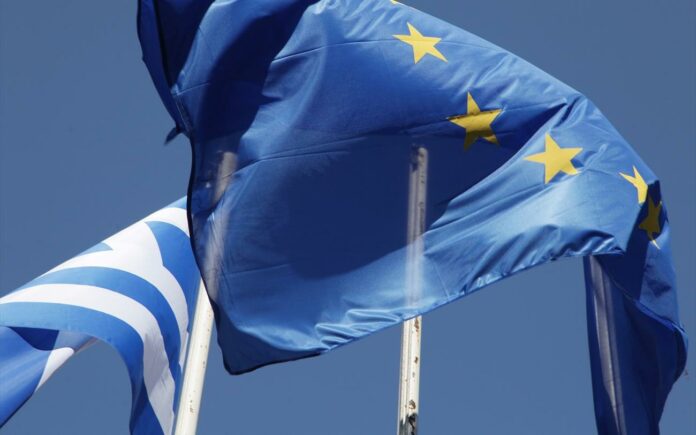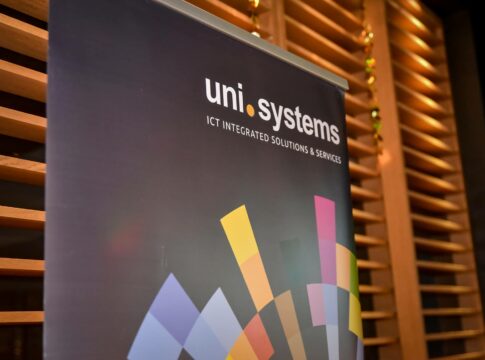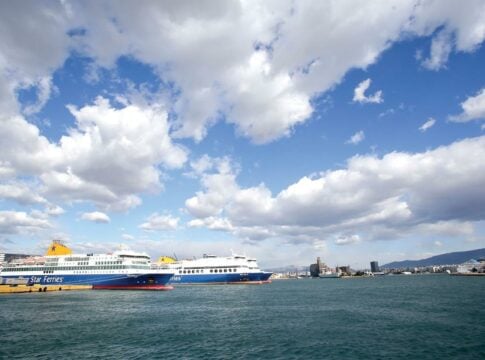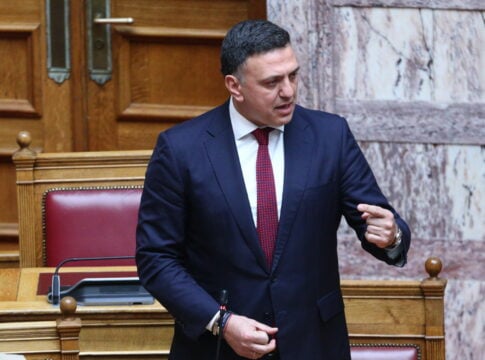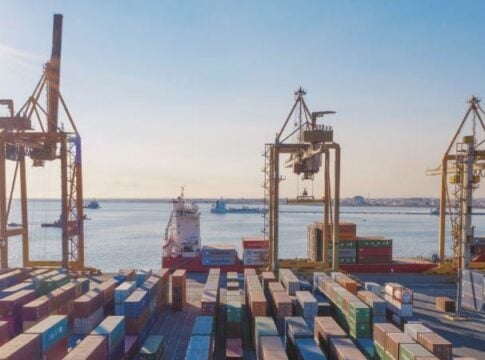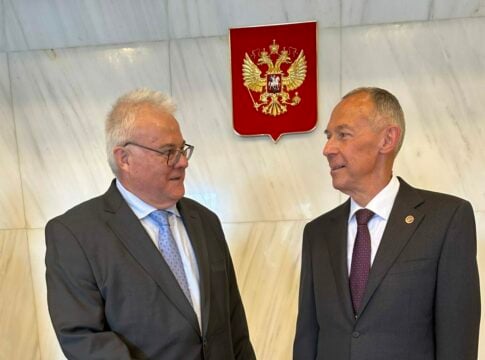By Caspar Veldkamp
Ambassador of the Netherlands to Greece
The Eurozone has regained its strength. Growth has returned to all Eurozone economies – even to Greece. This current strength is the result of the decisive steps that have been taken at the European level, as well as wide-ranging reforms that have been applied by individual countries. I recognize the pain and suffering that have often accompanied many of these reforms. But there was no other way.
Discussing the EU’s economic future
After the summer, European governments will continue to discuss the future of the Economic and Monetary Union (EMU). This discussion is taking place against the background of the current benign economic conditions. We need European solutions for a stable and more converging Eurozone. At the same time, negotiations on the post-2020 Multiannual Financial Framework (MFF) for the European Union are coming up. These discussions offer a unique opportunity to align this new budget outline with the ongoing work on the EU’s future agenda. The next MFF should reflect the common challenges faced by the European Union. I believe the topics of the MFF and the EMU are interlinked.
MFF – more ambition and a fair burden sharing
The new MFF should be future-proof, financially sustainable and flexible. The proposals that the European Commission published last May are unbalanced, in the sense that they:
- are not financially sustainable;
- lead to unfair burden sharing among member states; and
- should be more ambitious in reforming the substance of the budget.
We need substantially lower budget ceilings and a fair burden sharing amongst the member states, coupled to a much more ambitious modernization of the budget.
In about eight months’ time, Britain will leave the EU. Logically, a smaller EU implies a smaller EU budget. As a consequence, the Commission proposal will have to be adjusted downwards. Due to the disproportionately negative economic impact of Brexit on the Netherlands and several other member states, my country cannot accept an increase in its gross contribution to the EU budget. The burden of the proposed budget is very unevenly spread. I believe the net position of a country such as the Netherlands should be in line with countries that have a similar level of wealth. To achieve a fair outcome, excessive net contributions will need to be corrected.
The Commission’s effort to modernize the EU budget is positive. However, we need a much higher level of ambition. Modernization of the budget requires more focus on new priorities with clear European added value, such as innovation & research, climate & sustainability, migration and security. We also need to see more ambitious reform of major spending policies, such as the EU’s Common Agricultural Policy and the cohesion funds.
The Commission rightly wants to strengthen the link between EU funding and the respect for the rule of law. European governments whose actions undermine the rule of law, do not deserve our taxpayers’ money. The Netherlands is also in favor of increasing conditionality of EU funding in the field of structural reforms stemming from country-specific recommendations and the Stability and Growth Pact (SGP). Implementation of structural reforms is key to increase competitiveness. This links the MFF negotiations to the discussion on the future of the EMU.
EMU – improved national governance and risk reduction in bank balances
A stronger EMU requires first and foremost decisive actions at the national level and full compliance with our common rules for economic governance. The Netherlands strongly believes that if member states observe the rules of the SGP, they should have sufficient financial buffers to fully use the automatic stabilizers within their national budgets and withstand the large majority of economic shocks, without the need of European assistance. Therefore, instead of creating new fiscal capacities, the EU should make better use of the fiscal, economic and financial frameworks already in place, to deliver concrete results for European citizens in terms of stability, jobs and growth. To stimulate compliance and increase public support for its strict application, the SGP should be made less complex and more predictable.
The crisis has shown that high concentrations of domestic sovereign bonds on bank balance sheets can present a danger, as a sovereign default could trigger a banking crisis with dire consequences for the real economy. Therefore the initiative was taken to set up a Banking Union in the EU, which the Netherlands fully supports. As part of this Banking Union, a European Deposit Insurance Scheme (EDIS) was proposed to prevent capital flights. The Netherlands in principle is in favor of the creation of EDIS, but only after sufficient progress has been made on risk reduction. In the Greek context, addressing the high levels of NPLs is a crucial element of this endeavor.
I am convinced that, even though circumstances may differ among member states, a strict adherence to a harmonized economic governance within the EMU is the best way to realize convergence and an increased level of wealth in Europe. To accomplish this, we are very willing to support other member states, like Greece, by providing technical assistance where needed and exchange experiences and best practices.
Yes to solidarity, but no to a transfer union
Voters and parliamentarians in my country are continuously fearing a ‘transfer union’, in which their taxpayers’ money will flow to southern Europe without the south sufficiently reforming itself. This is a genuine concern. Governments in countries such as mine want more risk reduction before we come to more risk sharing in Europe. Meanwhile, we want to see that countries such as Greece continue to reform and make themselves more competitive in the globalizing world. We support solidarity, but solidarity can never be a one-way street. It comes with the obligation to show that the lessons of the crisis are learned. Greece should not fall back into the flawed policies and practices of the past. It has committed itself to reforms, which will only bear fruit if vigorously implemented. On the European level as well as on the national level, the second semester requires a solid approach.


